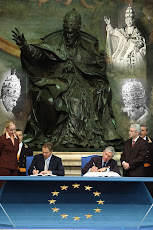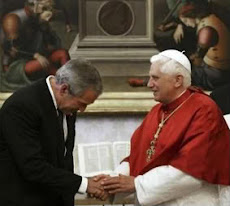.svg.png)
Proceedings from the U.S. Congressional Record of 1940 discussing how the British have been subverting the American government.
EVERY AMERICAN NEEDS TO READ THIS REPORT! The fact is the Conspiracy to over throw this Republic is not a new idea, the 1822 Treatise of Verona proves it, the answer to that treatise which was the Monroe Doctine proves it as well..Along with many war accounts concerning the war of 1812..But for now this 1940 Congressional Globe proves they pulled it off, Proves Americans, really factually and legally are Licensed u.s. Corporation serfs, have lived and illusion, in effect British Subjects..
Steps Toward British Union, a World State, and
International Strife—Part I
REMARKS
of
HON. J. THORKELSON
OF MONTANA
IN THE HOUSE OF REPRESENTATIVES
Monday, August 19.1940
Mr. THORKELSON. Mr. Speaker, In order that the
American people may have a clearer understanding of those
who over a period of years have been undermining this Republic,
in order to return it to the British Empire, I have
inserted in the RECORD a number of articles to prove this point.
These articles are entitled "Steps Toward British Union, a
World State, and International Strife." This is part I, and
in this I include a hope expressed by Mr. Andrew Carnegie,
in his book entitled "Triumphant Democracy." In this he
expresses himself in this manner:
Let men say what they will, I say that as surely as the sun in
the heavens once shone upon Britain and America united, so surely
is it one morning to rise, to shine upon, to greet again the reunited
states—the British-American Union.
This statement is clear, and the organizations which Mr.
Carnegie endowed have spent millions in order to bring this
about. This thing has been made possible by scholarships,
exchange professors, subsidies of churches, subsidies of educational
institutions; all of them working for the purpose of
eliminating Americanism as was taught once in our schools
and to gradually exchange this for an English version of our
history.
These organizations were organized to bring about a British
union, a union in which the United States would again become
a part of the British Empire. However, this has been
upset to some extent by the attempt of the internationalists
to establish their own government as an International or
world union. And there is, therefore, a conflict between the
two, for England wants a British union, with America as a
colony, and the international money changers want a Jewish
controlled union, in order to establish their own world
government.
It is, therefore, best for us to stay out of both of these,
in order to save what is left of this Republic as it was given
to us in 1787, by a people who knew more about international
intrigue and the real problems that confronted the world,
than we know today. These early founders not only understood
the problems, but in drafting the Constitution they
provided an instrument for us to follow, so that we could
remain secure from foreign double-dealing and intrigue.
263553—19504
Had we adhered to the Constitution as it was given to us,
we would have been secure and safe today.
Therefore, it is our duty, in the interest of our people and
in the interest of this Republic of the United States, to
ponder seriously and to give fullest consideration to solving
the problem which now confronts the world. In doing so, I
am rather inclined to believe that the real American people
will decide without hesitation, to return to those fundamental
principles that were set forth in the Constitution of the
United States. Let no one tell you that this instrument is not
as valuable today as it was in 1787, for the fact is that it is
much more valuable today—so much so that complete disintegration
of this Republic cannot be avoided should we fail
to return our Government to the principles set forth therein.
I shall now quote an article by Andrew Carnegie, which
he wrote at the request of the London Express, and which
appeared in that paper October 14, 1904, entitled "Drifting
Together."
DRIFTING TOGETHER—WILL THE UNITED STATES AND CANADA UNITE?
(Written by request for the London Express, October 14, 1904, by
Andrew Carnegie)
Britain and America being now firmly agreed that those who
attempted to tax the American Colonies against their protest were
wrong, and that in resisting this the colonists vindicated their
rights as British citizens and therefore only did their duty, the ,
question arises: Is a separation forced upon one of the parties,
and now deeply regretted by the other, to be permanent?
I cannot think so, and crave permission to present some considerations
in support of my belief that the future is certain to
bring reunion of the separated parts, which will probably come
about in this way: Those born north and south of an imaginary
line between Canada and the United States, being all Americans,
must soon merge. It were as great folly to remain divided as for
England and Scotland to have done so.
It is not to be believed that Americans and Canadians will not
be warned by Europe, with its divisions armed, not against foreign
foes, but against each other. It is the duty of Canadians and
Americans to prevent this, and to secure to their continent internal
peace under one government, as it was the duty of Englishmen
and Scotsmen to unite under precisely similar conditions.
England has 7 times the population of Scotland; the Republic
has 14 times t h a t of Canada. Born Canadians and Americans are
a common type, indistinguishable one from the other. Nothing
la surer in the near future than that they must unite. It were
criminal for them to stand apart.
CANADA'S DESTINY
It need not be feared that force will ever be used or required
to accomplish this union. It will come—must come—in the natural
order of things. Political as well as material bodies obey the
law of gravitation. Canada's destiny la to annex the Republic, as
Scotland did England, and then, taking the hand of the rebellious
big brother and that of the mother, place them in each other's
grasp, thus reuniting the then happy family that should never
have known separation. To accept this view, the people of the
United Kingdom have only to recall the bloody wars upon this
island for centuries arising from Scotland and England floating
separate flags, and contrast the change today under one flag.
The Canadians and Americans may be trusted to follow the
example of the Motherland and have but one flag embracing one
2 CONGRESSIONAL RECORD
whole race in America. Present petty Jealousies melt away as the
population north and south become in a greater degree born Americans.
Even if this blessed reunion came as early as the end of the next
decade, say 16 years hence, Canada and the Republic—the Scotland
and England of America—would embrace 115.000,000 of Englishspeaking
people, probably 7,000,000 of these in Canada. By the end
of the present decade, 6 years hence, their population will be close
to 97.000,000—6,000,000 of these in Canada. The Republic added
to her numbers the past 14 years more t h a n the total population of
Australasia, or than that of Canada, the immigration having been
enormous. One of these years it almost reached a million.
CECIL RHODES
The peaceful union of Canada and America would lead Britain
to a serious view of her position, resulting in the conclusion that
Cecil Rhodes reached—it will be remembered that he was at first a
strong British Imperialist. Mr. Stead recounts t h a t Mr. Rhodes went
to Lord Rothschild and laid that scheme before him, who replied—
"This is all very well, If you can get America to join—if not, it
amounts to nothing !" This led Mr. Rhodes to a study of the subject,
and the result was he saw clearly that Lord Rothschild was
right.
British federation would leave Britain as a member of the smaller
part of her own race, and out of the main channel of progress:
instead of sitting (with race imperialism accomplished) enthroned
as the mother among hundreds of millions of her own children,
composing all but a fraction of English-speaking men. Hence he
abandoned the scheme and thereafter favored race federation, and
left to America more scholarships than to all other lands. He saw
that it was to the Republic, not to British settlements, his country
had to look for the coming reunion of his race, with Britain
in her rightful place as parent of all. A few figures will leave no
room for dispute about this. In the last decade, 1890-1900, Britain,
Canada. Australasia, and New Zealand, combined, added to their
population 4,500,000—America 13,500,000. Canada only added 508,-
000, the Commonwealth of Australasia only 660,000. In the 4 years
since 1900 America added more than the total population of either
Canada or Australasia. During the present decade, 1900-1910, at
the same rate of Increase to date, she will add more than the present
total white population of Canada, Australasia, New Zealand, and
South Africa combined. So fast does the Republic grow, so slowly
the Empire.
INCREASE OF POPULATION
The United Kingdom itself increased last decade more than three
times as much as Canada and Australasia combined. It is not to her
colonies, therefore, t h a t Britain can look for much increase of population
or of trade. The growth of Australasia, small as it was in
the last decade, so far as reported in this decade is even less. Canada
is growing faster only in the far northwest, which is separated by a
thousand miles of barren land from the English-speaking Province
of Ontario. Last decade Ontario Province (English) actually declined
in British population; Quebec Province (French) slightly
increased. The census of 1900 shows fewer British-born residents
in all Canada than that of 1890. The wheatfields now reached by
rail are being settled by Americans who cross the border, selling their
American farms and buying new farms in Canada at one-tenth of the
price realized for the old. Except for this influx, about 70,000 so far,
the rate of increase in Canada will be about as last decade.
When we come to the population of the United Kingdom, we find
already in England and Wales 558 to the square mile. What thoughtful
man could wish much further increase, even if it were possible?
A denser population must cause deterioration. The density of population
in England and Wales is not reached by any European country,
except the small state of Belgium. France has only 188, Germany
270 (or one-half), Italy 290, Japan has only 296. The
authorities agree t h a t England and Wales are fully populated. Ireland
proves that it is so by the small increase. Scotland has increased
steadily for some decades, but little scope is left for further
increase. Substantially, Ireland and Scotland have today all they
can maintain in comfort.
Mark the contrast. America has only 21 people per square mile,
one-sixteenth that of the United Kingdom, one for every 26 in
England and Wales. These figures include Alaska, which resembles
most of Canada, and is not likely to support many people. Excluding
Alaska, the American population is 28 per square mile,
one-twentieth that of England and Wales. It is evident that Green
was right when he wrote years ago that the home of the Englishspeaking
race was not to be on the Clyde and the Thames, but upon
the Hudson, the Delaware, Ohio, Mississippi, and St. Lawrence.
There is not room for it in the dear old home, but there is, fortunately,
in the new lands of her children in Canada and America.
When we note the development Britain has attained industrially,
we are amazed. It is wonderful almost beyond belief: we doubt
and investigate to assure ourselves that we have the facts. This
little kingdom has today more shipping, and about as many spindles
turning as all the rest of the world. She is the richest of
all nations per capita. She makes more iron and mines more coal
per capita than any nation. Marvelous! Nothing comparable to her
in history! She positively dwarfs all previous records—a dwarf more
powerful than most giants. Who is there, then, who can expect
her to do more, what she has accomplished being scarcely credible?
PHYSICALLY IMPOSSIBLE
It is physically impossible that much further increase can come
to Britain, and in addition to this, conditions otherwise are unfavorable
to further development. Other nations by the use of her
263553—19504
inventions, are more and more supplying their own wants, and
will continue to do so. They will also compete with her more and
more, especially in iron and steel, and in cotton manufactures, owing
to her lack of the cotton plantations and of needed iron stone. If
Britain succeeds in maintaining present production in these fields
great will be the credit due to her captains of industry. As with
population, therefore, so with industrials—much increase is
impossible.
This is the age of consolidation, industrially and nationally.
Consider the recent consolidation of Italy and the more recent
consolidation and rapid growth of the German Empire. Who can
imagine that the process has stopped? On the contrary, we are
on the eve of further consolidations in Europe of great extent.
The successes of the American Republic, 45 States consolidated into
one Union, with free trade over all, and that of Germany with its
Zallverein, are too significant to pass unheeded.
The day of small nations is passing. Their incorporation with
larger areas is to be hailed by lovers of progress, provided always
t h a t one point be carefully preserved. The national sentiment of
the small powers should not only be guarded, but fostered in every
way, so that, as in the American Union and in Britain, the Virginian
and the Scotsman remain as intensely Virginian or Scotch
as ever. Pride in and loyalty to the wider empire do not supplant
but supplement love of the part where he was born. He loves the
part and is proud of the whole.
What will Britain do? The day is coming when Britain will have
to decide on one of three courses. First, shall she sink—comparatively
to the giant consolidations—into a third- or fourth-rate
power, a Holland or Belgium comparatively? Here note that we do
not postulate her actual decline, but the increased growth of
other powers. Or, second, shall she consolidate with a European
giant? Or, third, shall she grasp the outstretched hand of her
children in America and become again as she was before, the
mother member of the English-speaking race?
Assuming that other powers are to increase their present population
(as Germany and Russia have yet room to do), or by further
consolidation, it being evident that there is not room in the
120,000 square miles of the little, crowded United Kingdom for
further increase of moment, then the conclusion is inevitable that
one of these three courses is the only possible alternative, for
Britain has no adjoining territory she can annex.
Some have been disposed to regard British federation as a possible
fourth alternative, but the figures given, which convinced
Rothschild and Rhodes, we submit, compel its exclusion, especially
to such as seek for my motherland, as I do, a destiny worthy of ,
her—a future commensurate with her glorious and unparalleled
past. Let us rejoice that this is open. Her Canadian and republican
children across the Atlantic will hail the day she takes
her rightful place in the high council of her reunited race—that
race whose destiny, I believe with faith unshaken, is to dominate
the world for the good of the world.
(This article, in pamphlet form, was placed in the New York
Public Library on February 27, 1906, by the Honorable Joseph H.








No comments:
Post a Comment